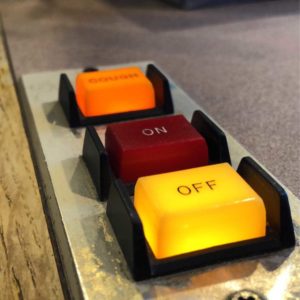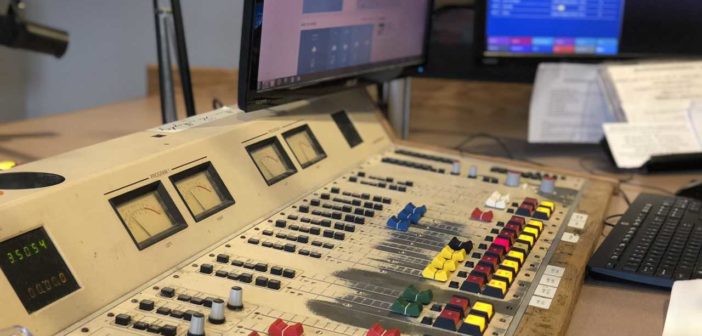Have you ever thought about being behind the mic and the board at a radio station, but didn’t know how to do it? Here are some steps to becoming a DJ at the campus radio station, WONC 89.1.
Getting involved
It is required for all students majoring in broadcast communication to work at the radio station, but any student — no matter the field of study — can also join. Joining the station is the easy part. All you have to do is register, come to the meetings and decide what you want to do in the studio.
Being a DJ isn’t the only option. There are many different roles that go into running a radio station such as newscasters, traffic and weather reporters, sports reporters, program directors and much more.
Running the show
There is more to being a DJ than just pushing buttons and introducing the songs. DJ’s are the ones in control.

Photo by Madeleine O’Connell
They are in charge of what music is played, when the mics get turned on, giving out information to listeners, etc. “I think it’s fun to have control of a station that people listen to,” says Sam Ring, ’18, assistant station manager of WONC. “Being here, we get a lot of say in music that we play… it’s fun and you get to experiment.”
Personality
As a radio DJ, it is your job to ensure the listeners are staying engaged. This means you need to go beyond the standard format. “There are announcers and there are personalities,” says John Madormo, general manager of WONC. “The personality is the person who people want to listen to not because of what that person is playing but because of who that person is and what they say.”
Another important aspect of being a DJ is speaking conversationally. Instead of talking on air as if you are reading straight from a script, pretend there is someone across from you that you’re talking to. This way, listeners will feel as though you’re talking directly to them and they will be more inclined to stay tuned in.
Getting behind the mic is your opportunity to bring out your personality over the air. At WONC, you have guidelines that you need to follow, but you can also add your own flare.
Difficulties
When you first step into a radio station, it may seem overwhelming with all the unfamiliar technology, but with a little help from the veterans at the station, it will feel easy in no time.
One of the main issues many DJs have when they first begin speaking on-air is stumbling over their words. Certain words or letters can be harder than others to say. The letter “W” is in many radio stations’ call letters (their name) and yet it is a word many people mispronounce. What many people don’t realize is that they say what sounds like “dubba you” instead of the correct pronunciation, “double you.” WONC can’t stress this difference enough. A tip is to write out the words “double” and “you.”
Getting a job
Working as a DJ may not be as easy as it seems. Students who wish to pursue becoming a DJ for their career think that they can jump right into a big radio station in the city, but the key is to start small. According to an article written by Ronald K. Raymond in 2016, “With fewer professional jobs available in the industry and more experienced broadcasters seeking positions after having been released due to downsizing, graduates hoping for radio careers often find it difficult securing opportunities.” The earliest years will be the hardest in your career before finding the station that you can settle down at.
How do you know if being a DJ is what you want to do? Well, if you are willing to work early in the morning or late at night, move around a lot and receive a low income, then chances are your heart is in becoming a DJ.

